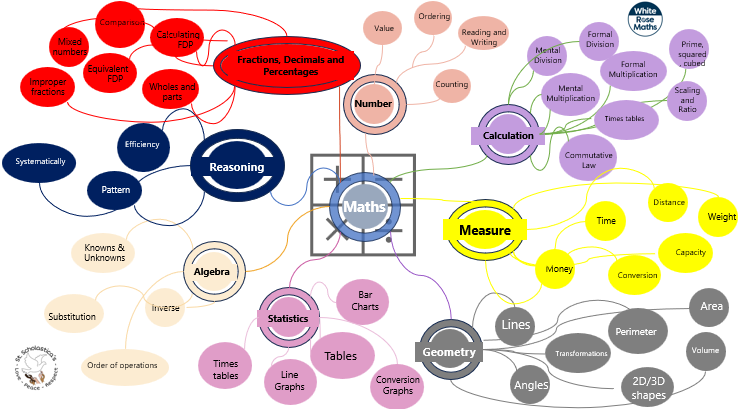"Mathematics is not about numbers, equations, computations and algorithms: it is about understanding." - William Paul Thurston
Our Vision for Maths
By the end of primary school, children at St. Scholastica’s will become confident and fluent mathematicians who will be prepared for their future economic well-being. A mastery approach is used to teach mathematics at St. Scholastica’s to develop a deep and secure mathematical knowledge. We aim for all children to have a positive experience of maths through providing them with a concrete, pictorial abstract route to their learning. We create an environment where children can express ideas confidently and talk about the subject using mathematical language to develop fluency of number facts. We aspire for all children to reason, conjecture and apply their mathematics using the correct mathematical vocabulary to a range of different problem-solving situations including real life scenarios. This will empower them to be successful in navigating the challenges of their education and life after school in our fast-changing world.


